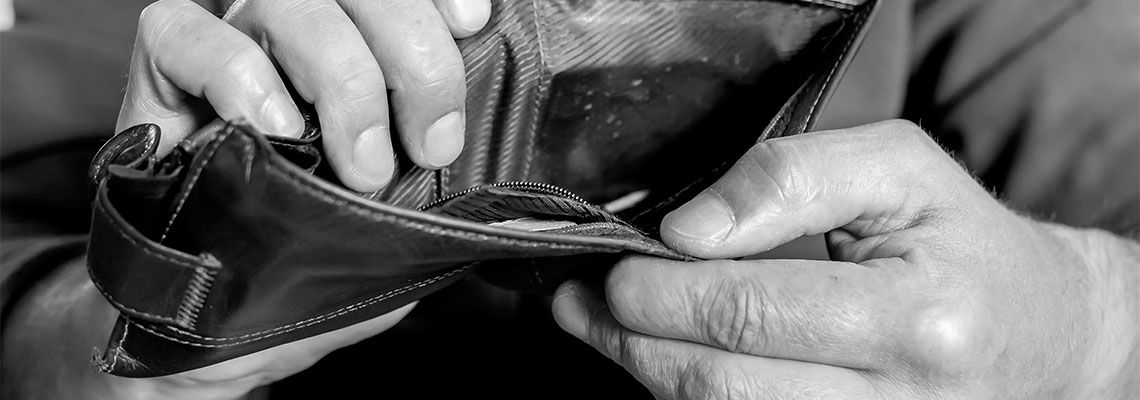
Calculating “Lost Earning Capacity”
Imagine you're a skilled carpenter and you injure your hand in an accident. Because of the injury, you can't perform your usual woodworking tasks anymore. Your lost earning capacity would be the income you could have made from your carpentry work if you hadn't been injured.
It's important to note that calculating lost earning capacity isn't a simple task. It involves taking into account various factors like your profession, location, education, skills, and even market trends. That's why we at Downs McDonough & Foley, LLC are here to help guide you through this process and fight to protect your rights.
Understanding Lost Earning Capacity
Lost earning capacity refers to the potential income one is unable to earn due to an injury or disability caused by an accident or another incident. It accounts for the reduction in one's ability to work, impacting future earnings. This concept goes beyond immediately lost wages—it's a long-term financial loss that considers numerous factors, such as career trajectory, skill set, and the capacity to perform specific jobs after the incident.
Loss of Income vs. Lost Earning Capacity
In the realm of personal injury claims, it's crucial to distinguish between loss of income and lost earning capacity. The former refers to actual earnings that you've lost due to your injury, encompassing missed work wages and potential future income lost due to ongoing medical treatment or disability. Conversely, lost earning capacity signifies the potential income you could have earned had you not been injured. This complex calculation takes into account various factors like your profession, location, education, skills, market value, wage rates, and promotion history.
How Is Lost Earning Capacity Calculated?
Calculating lost earning capacity is a multifaceted process demanding an in-depth analysis of several elements. Your profession plays a key role as different vocations carry varied earning potentials. Location is another vital aspect as wage rates can fluctuate considerably across regions. Your educational background and skill set also weigh heavily in determining your earning capacity. Individuals with higher education or specialized skills usually command higher earning potentials.
Your work history, including employment record, job stability, and any promotions prior to the injury, can significantly impact your future earning potential. Market value, reflecting the demand for your profession or skill set in the job market, is another critical factor. Those with sought-after skills may have higher earning capacities compared to those in less favored fields.
Determining the Pre-Injury Earnings
To calculate lost earning capacity, we first need to ascertain your pre-injury earnings. This involves gathering documents like tax returns, pay stubs, and employment records to establish your income history. We take into account not just your base salary, but also bonuses, commissions, or other forms of compensation you may have received. By establishing your pre-injury earnings, we can compare it with potential future earnings to calculate the loss.
Estimating Future Earnings
Projecting future earnings involves considering various factors that could impact your earning capacity. We take into account the injury's effect on your ability to work, any ongoing medical treatment or rehabilitation required, and any resulting disabilities or limitations. Consulting with medical experts and vocational specialists is critical to providing insights into your potential return to work and the possible impact on your earning capacity.
Considering Factors Affecting Earnings
Besides your profession, location, education, history, skills, and market value, other factors can affect your earning capacity. These may include inflation rates, changes in the job market, advancements in technology impacting certain professions, and personal factors such as age and retirement plans. All these elements need consideration when calculating lost earning capacity.
Calculating the Loss
After gathering and analyzing all necessary information, we can calculate the loss of earning capacity. This involves comparing your pre-injury earnings with potential future earnings, taking into account all relevant factors discussed above. The calculation may involve complex mathematical formulas and projections, often requiring consultation with financial experts or economists to ensure accuracy.
How to Prove Lost Earning Capacity
Proving lost earning capacity in a personal injury case can be challenging, especially since insurers often contest these claims. It requires presenting robust evidence and expert testimony to support the calculations and projections made. This might include providing documentation of your pre-injury earnings, medical records, vocational assessments, and expert opinions on the injury's impact on your ability to work and earn income.
Why You Should Work With an Attorney
Calculating lost earning capacity and proving it in a personal injury case can be overwhelming. Insurers often challenge these claims, and without proper legal representation, you may not receive the full compensation you deserve. We, at Downs McDonough & Foley, LLC, understand this and can gather the necessary evidence and expert testimony to support your claim. We negotiate with the insurance company on your behalf and fight for fair compensation for your lost earning capacity. If you are in Durango, Colorado, or the surrounding areas of Telluride, Pagosa Springs, Cortez, and The Four Corners, then reach out to our firm today for support. We are here for you.

